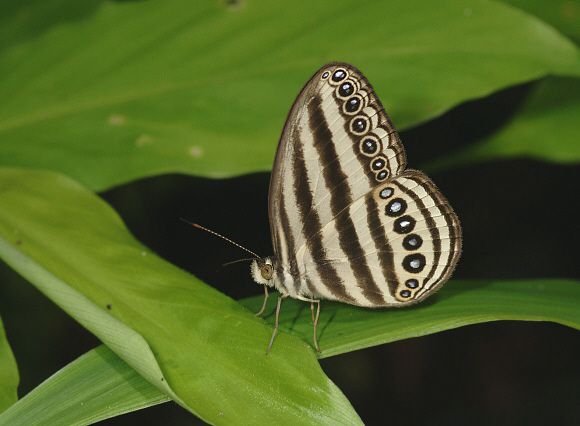
Introduction
There are 9 species in the genus Ragadia, all of which are Oriental in distribution.
The genus is instantly recognisable from the zebra-striped pattern, and the long series of evenly-sized ocelli on the outer part of the underside wings. The pattern on the upperside is similar but considerably paler, and in many species almost obscured by a heavy suffusion of brown scales.
Only 2 species occur in West Malaysia – makuta and crisilda, the latter being more brightly marked, and having the ocelli on the hindwing set within a dark band.
Ragadia makuta is found in southern Thailand, peninsular Malaysia, Sumatra, Borneo and Java.
Habitats
This species is found at elevations between about 400-1400m in sub-tropical and temperate forests, usually in dark humid forest close to streams. It’s abundance and distribution are both significantly affected by levels of rainfall, with populations decimated after high rainfall or periods of drought.
Lifecycle
Corbet & Pendlebury describe the larva as being “highly abnormal… It has short head horns and tail points, and on each segment there is a pair of subdorsal conical tubercules, from which a seta ( hair ) emerges bearing a drop of liquid”. The foodplant is Selaginella ( Selaginnaceae ), a fern-like plant commonly known as spikemoss.
Adult behaviour
The butterflies have a feeble fluttery flight, and rarely fly more than a couple of metres at a time. They are extremely localised – typically occuring in clusters of about 10-20 along a very short stretch of a narrow forest trail, but being entirely absent elsewhere in the vicinity.
